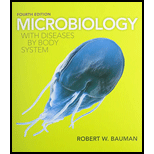
Concept explainers
To answer:
How are lichens useful in environmental protection studies.
Introduction:
Want to see the full answer?
Check out a sample textbook solution
Chapter 12 Solutions
Microbiology with Diseases by Body System & Modified MasteringMicrobiology with Pearson eText -- ValuePack Access Card -- for Microbiology with Diseases by Body System Package
- How lichens helps in manufacturing of dyes and minerals?arrow_forwardLichens are not in a mutualistic relationship with ascomycetes as some scientists beleive but are in a mutualistic relationship with cyanobacterium or algae. true or false?arrow_forwardLichens are a mutualistic association of a fungus and either an alga or a cyanobacterium in which the fungus slowly engulfs the photosynthetic partner. the phototroph provides inorganic phosphorus to the fungus. the fungus helps collect sunlight for the photosynthetic partner. the fungus protects the photosynthetic partner from erosion.arrow_forward
- What is a tylosis? How does formation of tyloses slow the spread of fungi in wood? Why doesn’t a tree make tyloses in vessels that are still conducting water?arrow_forwardGrowth of filamentous molds occur at the hyphal tip. What determines growth direction in fungal hyphae?arrow_forwardWhich types of fungi form arbuscular mycorrhizae and ectomycorrhizae?arrow_forward
- Why is the large surface area of the mycelium essential for nutrient acquisition by fungi?arrow_forwardThe symbiotic association between plant root and fungi is known as: O mycorrihiza O hyphae O actinomycetes O rhizobiumarrow_forwardWhat are some ways in which the relationship between a plant root and a mycorrhizal fungus is mutualistic?arrow_forward
 Biology: The Dynamic Science (MindTap Course List)BiologyISBN:9781305389892Author:Peter J. Russell, Paul E. Hertz, Beverly McMillanPublisher:Cengage Learning
Biology: The Dynamic Science (MindTap Course List)BiologyISBN:9781305389892Author:Peter J. Russell, Paul E. Hertz, Beverly McMillanPublisher:Cengage Learning
